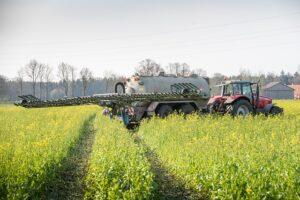This is how the seeding rules will change next year
If, by 2024, the European Commission does not allow the member states to provide their farmers with a temporary exemption from the new rules for crop rotation and the designation of non-productive areas, then next year, according to the provisions of the approved Hungarian CAP Strategic Plan, those not yet applied this year will come into force, but the rules of the uniform application are already explained in detail to everyone in the information campaign before submission.

(Photo: Pixabay)
Autumn sowing has started and next year’s sowing plans are already taking shape in most farms. Therefore, it is a legitimate expectation on their part to know the crop rotation rules applicable in 2024, as well as the 8. The rules of non-productive areas to be designated within the framework of HMKÁ regulations.
An important question is whether there will be a derogation in these two areas next year
This year, in 2023, at the request of the member states, the European Commission, due to the uncertain global food supply situation, allowed farmers a temporary exemption from certain crop rotation and fallow design rules that must be observed for area-based subsidies, in order to make their arable land available to them be used for food production as much as possible. The European Commission is still examining the request of several member states, including Hungary, and has not yet decided whether it will allow member states to grant their farmers a temporary exemption from the new rules for crop rotation and the designation of non-productive areas in 2024.
In mid-September 2023, it is not yet known whether there will be an exemption in 2024
The Ministry of Agriculture is therefore currently drawing attention to the fact that the derogation must be terminated and that in 2024 the crop rotation and fallow rules for the period 2024-2027 must be applied in accordance with the provisions of our approved KAP Strategic Plan. According to the Hungarian point of view, the difficult circumstances affecting farmers require that the sector be given full flexibility to alleviate market anomalies, the primary element of which is free production decisions. In the information of the ministry, nos. 7 and 8 were summarized. HMKÁ regulations, i.e. the most important information about crop rotation and fallow regulations. At the same time, they also remind us that with regard to the submission of a single application and the set of conditions related to each form of support, the laws in force at the time are the governing bodies. Of course, Hungarian farmers will also be informed about the final decision in Brussels.
AM
Related news
NAK President: more than 120 thousand people signed the agricultural petition in one month
🎧 Hallgasd a cikket: Lejátszás Szünet Folytatás Leállítás Nyelv: Auto…
Read more >János Lázár: rural development is needed, not agricultural policy
🎧 Hallgasd a cikket: Lejátszás Szünet Folytatás Leállítás Nyelv: Auto…
Read more >Related news
GDP growth in OECD member countries slowed to 0.3 percent in the last quarter of last year
🎧 Hallgasd a cikket: Lejátszás Szünet Folytatás Leállítás Nyelv: Auto…
Read more >








